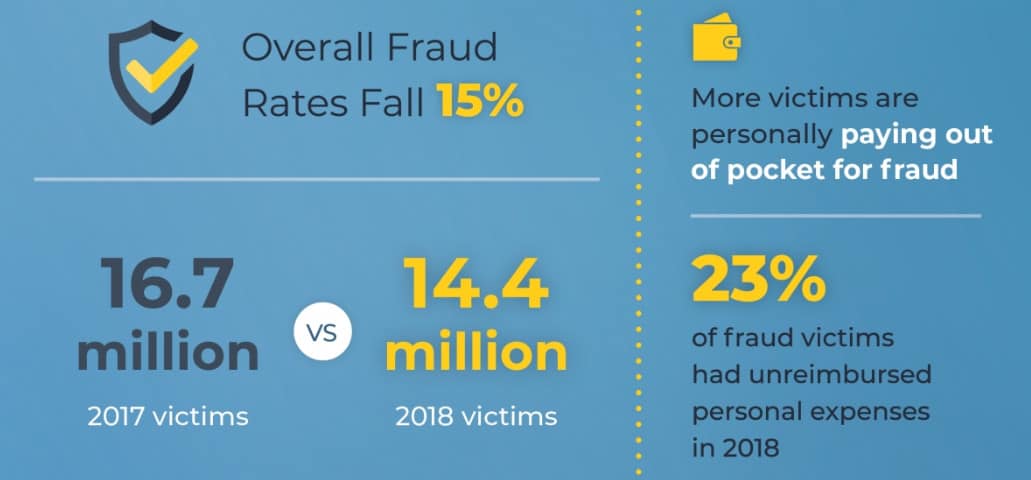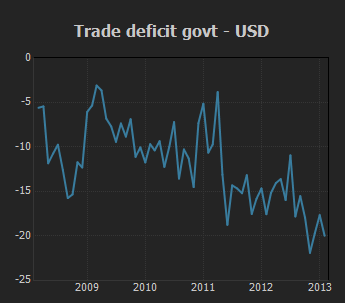Contents:


Bookkeeping is a day-to-day process that records financial transactions like purchases, receipts, sales, and payments. Bookkeeping, accounting, controlling, it’s all just crunching numbers, right? While both roles are fundamental in an organization’s accounting process, each position executes tasks at different tactical and strategic levels of this process. Understanding the similarities and differences between the two will help guide your decision making when deciding exactly which position is best for your organization. The bookkeeper can be found working in small, medium, or large business organizations.
He or she manages the accounting function, including ensuring month-end close processes and financial reporting functions are performed accurately and timely budget creation. Because bookkeepers are the source of the original data entry, they must understand how to code each transaction. In terms of average pay rates, BLS data from May 2021 identifies the District of Columbia, Massachusetts, Washington, California, and Connecticut as the top-paying areas. Regarding overall job numbers, the BLS ranks California, Texas, Florida, New York, and Pennsylvania as the states with the highest employment levels. According to BLS data from May 2021, the top 10% of bookkeepers earned median base salaries of $61,980 per year. Employers in areas with higher living costs also tend to pay a premium.
Job Description for Bookkeeper
Both bookkeepers and accountants are vital for any company or small business and play pivotal roles in the success and function of an organization. A bookkeeper can help you improve cash flow, make budgeting decisions, and manage your business’s financial health. This is especially valuable if you’re just starting a service business.
Both public and private accountants are well-compensated, and the Department of Labor projects job growth in both fields to be steady (~4% through 2029). That said, public accountants tend to make slightly more income than their private peers in comparable roles. And remember, Certified Public Accountants also tend to make about 10-15% more than non-certified accountants. Depending on the size of the business, an accountant may do some of the same duties as a bookkeeper. Typically however, accountants have a four-year college degree and have a higher level of expertise and experience than bookkeepers.
Bookkeepers and accountants both handle financial matters but their roles vary significantly when it comes to managing money within businesses or organizations. If an individual wants to work at a public accounting firm, becoming a CPA is a must to advance to management. If an accountant wants to work for a single company, they can advance to management and beyond without a CPA license.
Sync your clients and payment information to QuickBooks Online
A CIA is an accountant who has been certified in conducting internal audits. To receive this certification, an accountant must pass the required exams and have two years of professional experience. There are several types of accounting certifications that accountants obtain to expand their skill sets and gain positions within larger organizations. In addition to CPA credentials, other common accounting designations are chartered financial analyst and certified internal auditor . Accountants verify and analyze data, generate reports, spot trends, and provide business owners with insights from their financials.
Business of Home – Business of Home
Business of Home.
Posted: Thu, 16 Mar 2023 07:00:00 GMT [source]
However, keep in mind that those higher living costs may cancel out the financial benefits of increased bookkeeping salaries. Industry observers agree that software improvements have made bookkeeping more efficient. As a result, the profession’s growth rates have slowed, but the Strategic Finance article notes growing gaps between the number of open jobs and the number of people qualified to fill them. Bookkeeping attracts career-minded professionals with its low barriers to entry and strong upward mobility.
What Training Do You Need to Be a bookkeeper vs Accountant?
Typically accountants do not handle the actual bookkeeping tasks themselves, but rather serve as an analytical resource for business owners. People often confuse bookkeepers and accountants—and with good reason. While there are certain similarities and overlaps between the two, there are distinctions that set these two roles apart. Bookkeepers don’t necessarily need higher education in order to work in their field while accountants can be more specialized in their training. Because bookkeepers tend to work for smaller companies, they may not be paid as much as accountants.
This is equivalent to an average full-time annual income of $71,040. In contrast, the average hourly wage of more than 1.6 million bookkeepers was $17.62 per hour, for an average full-time wage of $36,640 per year. On average, accountants received almost double the salary of bookkeepers. I estimate that a bookkeeper’s salary will be less than half of an accountant’s salary. For example, an accountant with a year or two of experience might earn $60,000 per year while a bookkeeper will earn less than $30,000 per year.
Bookkeepers and accountants both work with financial records, but accountants have a higher level of responsibility. Bookkeepers focus on recording daily transactions, such as income and expenditures, and producing reports. Accountants oversee financial records and systems for best practices, efficiency and compliance with the law. They also prepare tax returns and find ways to cut costs and increase profits. As a reflection of their increased responsibilities, accountants earn significantly more than bookkeepers on average.
- In addition, bookkeepers should be familiar with basic accounting principles and computer software programs such as Microsoft Excel and QuickBooks.
- Some employers may also offer additional benefits such as healthcare coverage or retirement plans in addition to base pay.
- Knowing what specific skill gaps you need to fill can help you in targeting the candidate with the right qualifications.
- If you’re just launching your bookkeeping career, a professional certification can set you apart from the competition.
- Earning potential for bookkeepers willing to get further training and are working under a certified accountant may make as much as $48,000 a year.
On average, accountants make $60k-$90k annually while the average bookkeeper’s salary is between $30k and $50k. While bookkeepers may not need any certifications at all, a license is non-negotiable for accountants. Accountants have a more advanced role than bookkeepers in that they analyze data to make recommendations about how a business can improve its operations or save money.
Regardless of which bookkeeping certification you pursue, we recommend taking a preparatory course. This course should teach you the fundamentals of accounting, along with how to adjust entries, correct accounting errors, master payroll and inventory, understand depreciation, set internal controls and prevent fraud. The following infographics illustrate the key differences in the educational requirement, area of expertise, salary, etc. of a bookkeeper and a CPA. Financial InformationFinancial Information refers to the summarized data of monetary transactions that is helpful to investors in understanding company’s profitability, their assets, and growth prospects.
What Will It Cost to Hire a Virtual Accountant In 2023? – BOSS Magazine
What Will It Cost to Hire a Virtual Accountant In 2023?.
Posted: Mon, 27 Feb 2023 08:00:00 GMT [source]
It also does not make any distinction between the many specific on-the-job titles an accountant might hold, and it does not include self-employed income. Further, its reports do not reveal the differences between entry-level accountants and those with years of experience. So we’ve compiled information here to help you make those distinctions. The average Bookkeeper salary in Minneapolis, MN is $45,520 as of March 28, 2023, but the range typically falls between $40,714 and $50,533. Salary ranges can vary widely depending on many important factors, including education, certifications, additional skills, the number of years you have spent in your profession.
The opinions expressed are the author’s alone and have not been provided, approved, or otherwise endorsed by our partners. Outside of universities, certifications are available through the American Institute of Professional Bookkeepers and the National Association of Certified Public Bookkeepers . In the reports or the transaction details of Wanderlust varies in specific months.
But to properly manage your e-commerce business, you need to dive into the differences to know whom to hire. Entry-level positions require at least abachelor’s degree in accounting, though some employers prefer a graduate degree. According to the BLS report on accounting, many colleges offer bachelor’s andmaster’s degree programs for specific specializations, such as tax accounting or forensic auditing. Other specialties are available through continuing education or professional development courses. For example, accountants could earn acollege-level certificate in financial planningif they were interested in long-term investment and financial strategy. Accountants handle many tasks, and advance to a variety of levels based on their experience and qualifications.

Generally, a bookkeeper’s formal education will be less than a four-year college degree. Accountants generally have a 120 or 150 credit college degree including at least 30 credits of accounting courses plus 30 credits of other business courses. Founded in 1902, Franklin is an accredited nonprofit university offering flexible college degrees online and at locations in Ohio and the Midwest. According to leading labor market analytics firm EMSI, the median annual salary for a bookkeeper is $42,411. Accountants, on the other hand, earn a median annual salary of $73,570, which is a 73% increase compared to a bookkeeper.
She uses a variety of accounting software for setting up client information, reconciling accounts, coding expenses, running financial reports, and preparing tax returns. She is also experienced in setting up corporations with the State Corporation Commission and the IRS. However, there are also several advantages of hiring a certified accounting professional in addition to or over a bookkeeper. These advantages include the benefit of a comprehensive financial analysis, a higher level of expertise, and legal assistance. Accountants can suggest recommendations and strategies to make the most out of your business financially. They can also help businesses efficiently deal with corporate taxes and any legal issues.

how to calculate stockholders equity Statistics, in 2021, the national average hourly rate for bookkeepers was$21.90per hour and for accountants,$37.14an hour. Accountants make more due to their educational background and if a CPA, their certification. Generally speaking, the larger the company, the higher the pay for a given role, and the better defined your career path will be.

Recent Comments